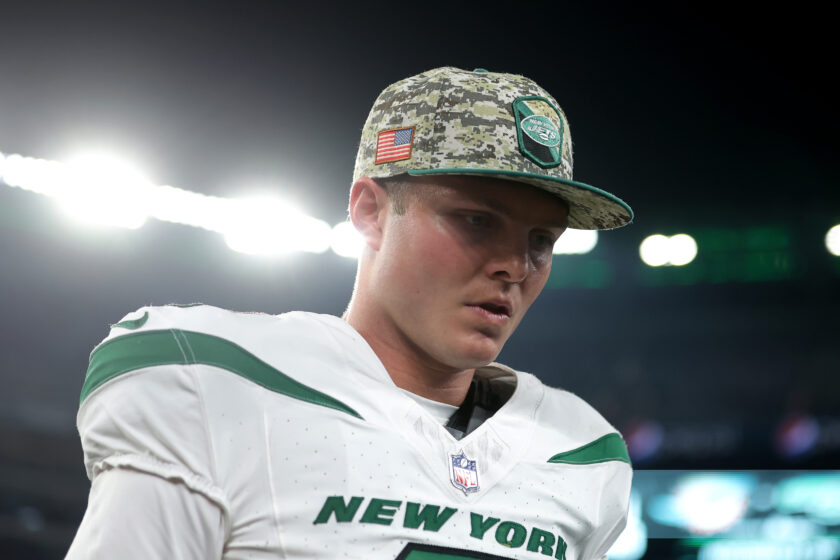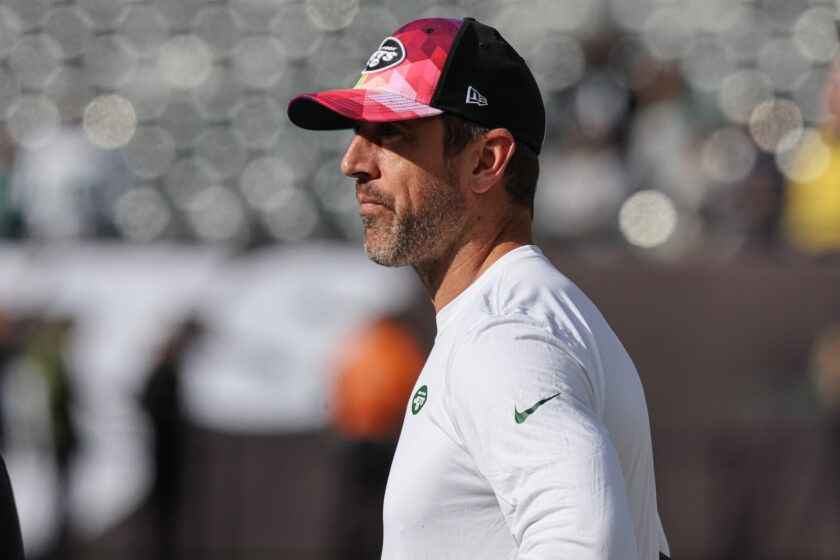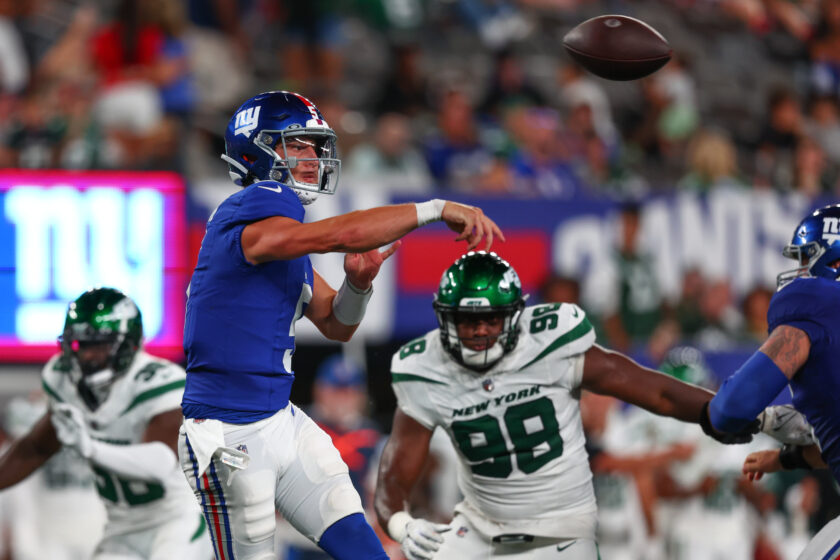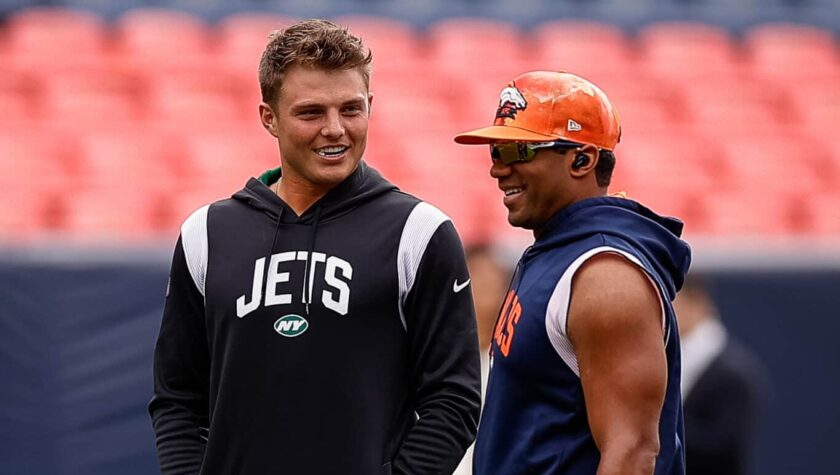Key numbers from the New York Jets’ Week 1 loss to the Buffalo Bills
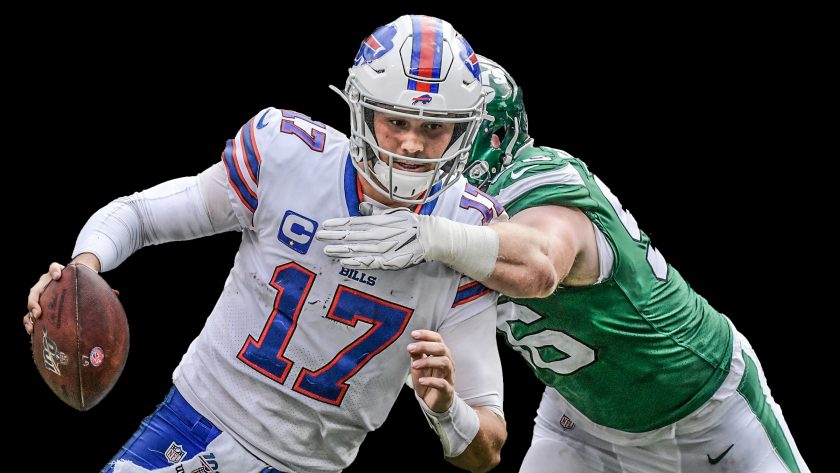
Key numbers were revealed once the final gun shot on the New York Jets disheartening 17-16 Week 1 loss to the Buffalo Bills.
[sc name=”Michael Nania Banner” ]3.4 – Yards per pass play accumulated by Jets offense
The New York Jets passing attack against the Bills was horrendously awful and everybody besides Le’Veon Bell and Jamison Crowder deserve some blame.
Firstly, the offensive line had a flat-out terrible game. It was the first action that the first-team starters had gotten together in a real game, and that showed in full force. Protection breakdowns were aplenty and Sam Darnold was under constant duress. Darnold ended up taking four sacks for a total of 20 yards.
Despite the protection issues, Darnold should not be off the hook for his performance. He threw for 175 yards on 41 pass attempts, an average of 4.3 yards per attempt that was lower than any single-game mark he posted as a rookie.
Darnold missed numerous open throws, many of them to Robby Anderson. There was zero production down the field, as Darnold averaged a minuscule 6.3 yards per completion, an average more than two full yards worse than any of the 25 other teams who had played through the end of Sunday.
He also seemed to be locking on to his first read way too often and took at least one sack that he absolutely should not have. Even his completed underneath throws were often imperfect, forcing Bell and Crowder, in particular, to adjust and make impressive catches plenty of times.
All of the offseason promise surrounding Darnold seemed to evaporate in the matter of one game. He is now squarely under the spotlight and needs to bounce back in a big way over the next few games to restore hope that he could potentially be a long-term answer. After this last game, his status as a franchise quarterback remains in question.
Altogether, the Jets amassed 155 passing yards across 45 passing plays, a brutal average of 3.4 yards per play.
14 – Receptions by Jamison Crowder
Crowder was a focal point of the offense in his Jets debut, as he recorded a whopping 14 catches for 99 yards. His catch total tied him with Al Toon for the second-best single-game mark in Jets franchise history, trailing only the total of 17 catches posted by Clark Gaines in a loss to the 49ers back in September of 1980.
Despite the measly average of 7.1 yards per reception, Crowder did move the chains on six of his receptions. He showed a strong nose for the sticks, as many of his first-down conversions needed to be fought for.
92 – Scrimmage yards for Le’Veon Bell
Bell did not have the most dominant performance in the box score. In his Jets debut, Bell ran for 60 yards across 17 carries, an average of just 3.5-per-carry while catching six passes for 32 yards. He hauled in a receiving touchdown and converted a two-point play afterward.
However, those numbers mask the magnificence Bell showcased in this game. The Jets’ run-blocking was awful, yet Bell continued to churn out his own yardage snap after snap. He consistently made the first defender miss, sometimes doing it with pure power, sometimes doing it with lateral shiftiness. There were numerous plays where he made multiple defenders miss on his way to creating chunks of additional yardage.
[sc name=”Jets Center” ]Bell’s pass game impact was profound as well. His touchdown catch was a plus play, as he snagged a poorly-placed low throw from Darnold. Right after that score, Bell made a marvelous leaping grab for the two points, looking like a veteran big-body tight end.
There were quite a few plays in which Bell pass-blocked, and he was highly successful on those snaps.
Don’t let the box score or the team’s overall offensive struggles fool you — Bell made a tremendous positive impact on the offense in his debut. The way the Jets were playing offensively, it seems entirely possible that they would not have scored even a single point without Bell’s contributions.
5.1 – Yards-per-carry allowed by the Jets run defense
Once C.J. Mosley left the game, the Jets defense immediately began collapsing. Specifically, their struggles came in the run game. On the day, the Jets allowed Buffalo to rush for 128 yards on 25 carries, an average of 5.1 per attempt.
Devin Singletary gained a whopping 70 across only four rush attempts, all of those coming in the second half.
After the Bills seemingly had zero interest in handing the ball off early in the game, they teed off once Mosley went down. On the first drive following Mosley’s injury, the Bills ran for 60 yards across five rushing attempts, the last of which was a three-yard touchdown scramble by Josh Allen.
The Jets did a decent job holding Allen in check throughout the game, as he only ran for 38 yards after gashing them for 101 last year. However, the run defense following Mosley’s exit was extremely concerning. Blake Cashman and Neville Hewitt did a terrible job defending the run without Mosley in the game. The Jets have enough depth questions at other positions, but now they have to worry about how they are going to defend the run competently if they are ever going to be without their big-money inside linebacker.
[sc name=”Jets Link Next” link=”https://elitesportsny.com/2019/09/08/new-york-jets-lose-brutal-opener-to-buffalo-bills-17-16-highlights/” text=”Jets Lose Brutal Opener, 17-16, To The Bills (HIGHLIGHTS)” ]Jets/NFL at ESNY ----- Twitter: @Michael_Nania ----- Cool Your Jets Podcast with Ben Blessington



